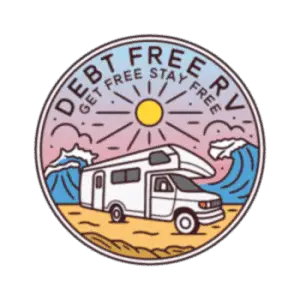If you’re looking at buying an RV as an investment, it’s a good idea to rethink that strategy.
RVs depreciate in value once driven off the lot, at an average rate of 36% to 38% during the first five years of ownership. Not only that, but RVs are gas-guzzling, maintenance-demanding, repair-needing metal boxes on wheels. So, in short: RVs are money pits.
Let’s take a closer look at how much RVs typically cost, where that money goes, and if there are ways to make some of that money back!
Initial Cost: Buying an RV
The first large expense, of course, is the purchasing of the RV itself. Costs can vary wildly, depending on whether you’re purchasing from a dealership or somewhere like Craigslist.
When bypassing dealerships, potential buyers will often find the cost discounted- but the RV might not be as well maintained (meaning costly repairs in the future), and do not offer warranties. Most sellers will only sell “as is”, with buyers having not recourse if something goes wrong with the RV.
On average, RVs can cost anywhere between $5,000 (used) to well over $130,000 (new, from a dealership, with all the bells and whistles). And remember: Cheaper does not equal better; On the contrary, when it comes to RVs, cheaper often means you’re inheriting cosmetic, structural, or mechanical problems, all of which can cost you a lot of money in the future.
Gas: RVs Are Guzzlers
If you’re planning on taking advantage of the mobility RVs bring, expect to pay the piper, in terms of gas costs.
RVs are notoriously heavy, non-aerodynamic cubes on wheels. Depending on the Class size, RVs only get 8 to 20 mpg. And 20 mpg is a rarer find among RVs!
For our 1992 19′ Chevy Passport Cobra, we spend $80 to $100 on filling up the tank, and get about 8 mpg. Doing the math, you can already see this is a hefty expense for those on the road.
Maintenance, Smog Checks, and Repair Costs
Even with a lot of TLC, RV parts will break, or need replacement. Driving down the road, with everything jiggling around- from the pipes to the wires to the appliances- maintenance and repairs are a big part of RV ownership.
Small repairs, like recaulking the window trim or switching out the lightbulbs, are quick, cheap fixes that won’t burn a whole in your wallet. However, there are a number of other high-cost repairs and necessary maintenance that are harder to swallow. A few examples:
- Generator Replacement = $800 – $2400
- Awning Repair = $500 – $3500
- Smog Check = $100 – $300
- Step Replacement = $80 – $300
- New Tires = $250 – $1000 (Recommended to replace all at the same time)
- New Fridge = $250 – $2000
- Roof Repair = $350 – $3500
To keep these prices down, it’s always a good idea to start getting handy: Learn a few repair and carpentry skills, and get ready to roll up your sleeves for some DIY work. In the long run, you can save thousands of dollars on your RV’s upkeep.
But, Is There ANY Way to Make Money with Your RV? (Yes!)
Owning an RV isn’t all doom and gloom when it comes to money. Sure, they can cost more than many people anticipate, but there are some entrepreneurial RV owners who are figuring out ways to actually earn money on their purchases… turning their RV into an investment!
The two most popular ways to earn money with an RV are using them as AirBnB stays or Outdoorsy rentals.
There are a couple ways people use their RVs to their advantage:
- If using an RV seasonally, rent it out on Outdoorsy when not in use
- Buy land/use the back yard, and set up unused RVs after renovating them to provide “off grid experiences” to curious visitors on AirBnB
RV owners set prices for nightly rentals between $80 to over $300 per night, earning a nice profit for otherwise unused vehicles!
Wrap Up
By most metrics, RVs are money pits. Frequent maintenance, repairs, gas costs, and depreciation are all part and parcel of RV ownership.
But, there are a few ways people are turning their RVs into money-making investments: Utilizing platforms like AirBnB and Outdoorsy, and providing the RV experience to interested parties.
If you’re not earning money on your RV, you’re most certainly losing value on the vehicle with every passing day, making RVs a less than optimal monetary investment. But the freedom RVs still bring… is a personal investment; Satisfying wanderlust in the hearts of nomads.
Who can put a price on that?

